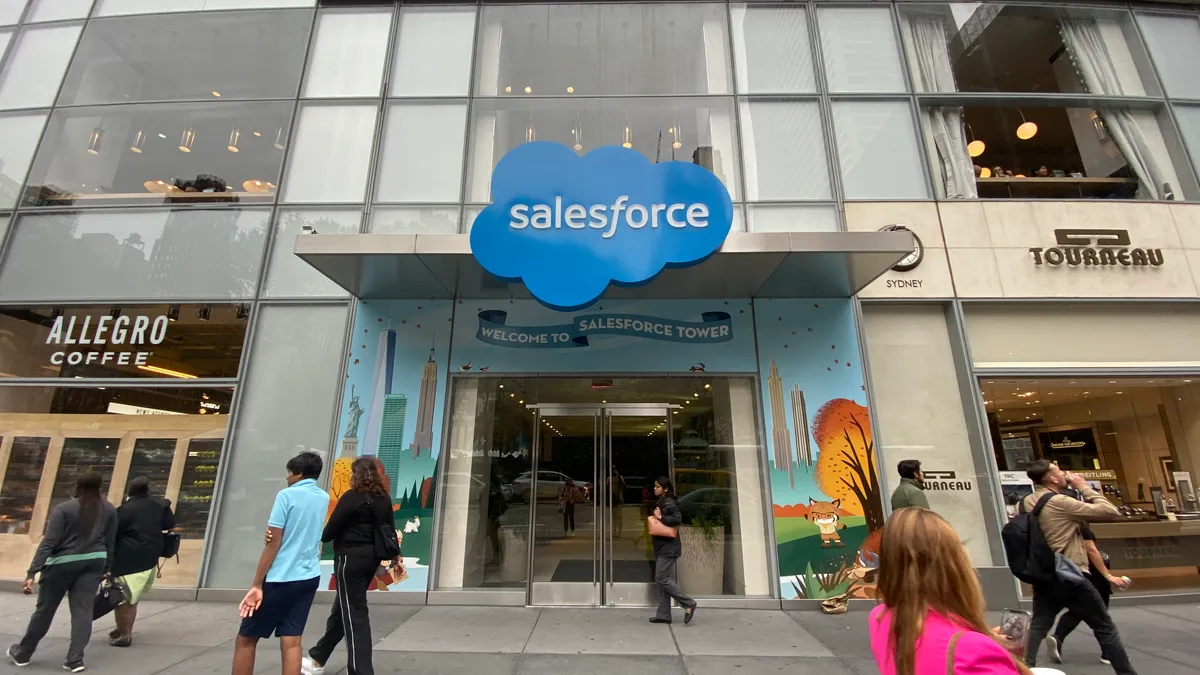Dive Brief:
- The Salesforce acquisition sets up the next chapter in Slack's strategy; the platform will evolve into a layer that integrates core applications with conversational work in the enterprise, said Stewart Butterfield, co-founder and CEO of Slack, speaking Thursday at Reuters Events' MOMENTUM Virtual Forum.
- Slack can sit between structured automated workflows within the company and the "ad hoc, loose, messy conversational" work taking place within organizations, Butterfield said.
- Bringing workflows and approvals directly into Slack, where conversations are already happening, "creates a lot of new possibilities for higher level integrations," Butterfield said.
Dive Insight:
In Salesforce's acquisition of Slack, a key question arises for the future of the collaboration platform: Which integration capabilities can help it expand its foothold in the enterprise market?
Analysts are signaling the need for enriched integration capabilities and third-party communications, as well as a clearer tie between the technology and the efficiency it can provide. A strategic advantage Salesforce saw in the $27.7 billion deal is the ability to capture "a larger share of the work happening around sales," said Butterfield.
Butterfield described the sales scramble that occurs at organizations as each quarter closes. An intricate, multi-step process brings together finance, accounting, sales and legal teams to complete sales by the end of the quarter.
"You have the account executive trying to make sure that their deals get in before the end of the quarter," said Butterfield. Under pressure, workers move to locate signed order forms, make currency accommodations or tend to security questionnaires before deals can be signed.
This cross-team scrum is "critically important," but it's not currently covered by Salesforce's Sales Cloud.
"It's not a criticism of Sales Cloud at all," Butterfield said. "It's just that there is this overlap across functional boundaries that is how a lot of work gets done."
But the acquisition of Slack also signals Salesforce's intent to seize on enterprise's new found understanding of distributed work. Eight in 10 business leaders say their organization plans to allow workers to continue working remotely at least some of the time, according to a Gartner survey.
"The value of a digital headquarters increases significantly when people don't have their physical headquarters to rely on," Butterfield said.
















